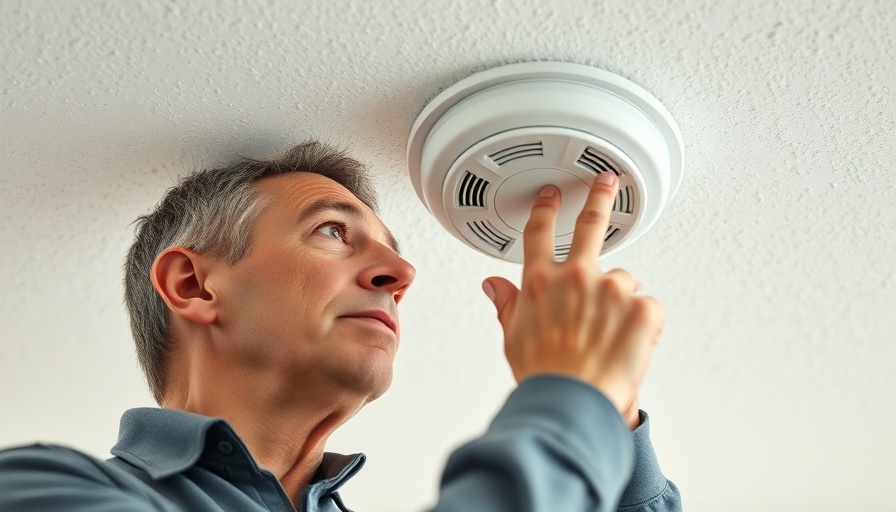
Understanding the Purpose of Smoke Alarms
Smoke alarms are your first line of defense against hazardous fires, designed primarily to detect smoke rather than fire itself. Kevin Feak, a licensed fire protection engineer, emphasizes that despite commonly being referred to as "fire alarms," the reality is that these devices are built to sound an alert when smoke is present. Understanding this distinction is crucial for homeowners to respond appropriately when an alarm goes off unexpectedly.
Common Reasons for False Alarms
So, what happens when your alarm goes off without any visible indication of fire? Homeowners often face this frustrating scenario, yet there are common culprits that can cause these false alarms. Here’s a look at some frequent offenders:
- High Humidity: Humidity can mimic smoke particles, particularly if your smoke detector is situated near a bathroom or kitchen. If you've ever taken a hot shower, you might have noticed the alarm going off due to steam. Relocating the detector can significantly alleviate this issue.
- Cooking Mishaps: Burnt food is probably the top reason for alarm sounds. Whether it’s a slight char on the toast or burnt popcorn, smoke detectors are incredibly sensitive. Keeping your alarms at least 10 feet away from cooking appliances can prevent these disruptions.
- Dust and Bugs: Over time, dust can accumulate within your smoke detector, disrupting its function. Additionally, insects often find their way inside detectors, leading to accidental alarms. Regular cleaning can help mitigate these problems.
- Chemical Odors: Whether you’re remodeling your home or deep cleaning, strong chemical scents can trigger alarms. It’s advisable to ventilate these areas adequately while working with harsh substances.
- Low Batteries: If your detector is chirping, it likely means it’s time for new batteries. Regular maintenance of the device – such as changing batteries twice a year – is vital for ensuring its reliability.
Addressing the Anxiety of False Alarms
Living with constant false alarms can evoke confusion and anxiety. Recognizing that these alarms serve a critical safety purpose is essential; they are designed to alert you to potential dangers, even when false positives occur. Ignoring them entirely can pose significant risks, especially if there is a fire that the alarm fails to detect. By understanding the causes and taking proactive measures to address them, homeowners can improve their peace of mind without sacrificing safety.
The Benefits of Regular Maintenance
Regular monitoring and maintenance of your smoke alarms are key to reducing false alarms and ensuring that they function correctly. At least once a year, try cleaning the detector and checking its sensitivity. If your smoke alarm is over ten years old, consider replacing it entirely. This not only enhances performance but also increases safety in your home.
Conclusion: Take Control of Your Home's Safety
Understanding the common triggers for smoke alarms can make a significant difference in your home’s safety management. By prioritizing regular maintenance and making small adjustments, such as relocating alarms or diligent cleaning, homeowners can minimize the frustrating instances of false alarms. Remember: while these alarms may sometimes feel like a nuisance, they play a vital role in keeping your household safe.
For further information on ensuring your home is equipped with reliable smoke detection systems, contact your local fire safety experts today. Don’t compromise on your family's safety!
 Add Row
Add Row  Add
Add 




Write A Comment